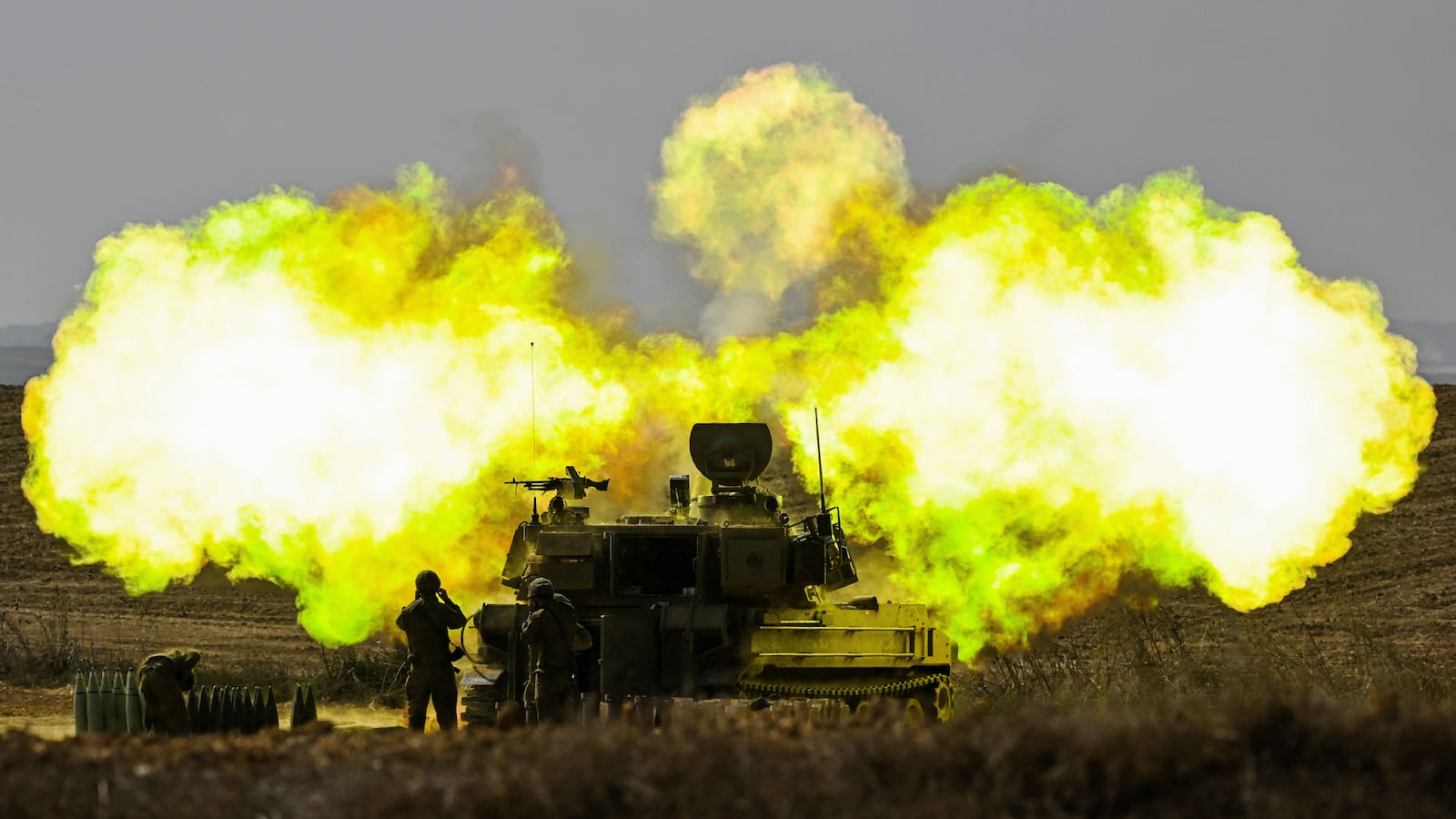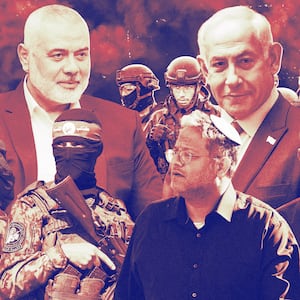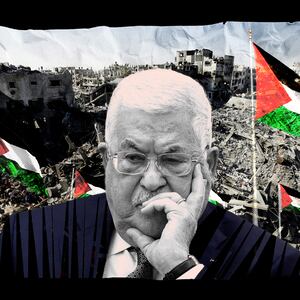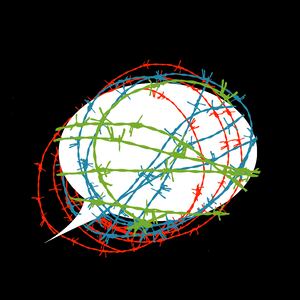Iranian and Arab pundits, both radical and moderate (on state-run TV), seem to have reached a consensus that Israel is not winning in Gaza. Arab loyalists to Tehran go as far as to argue they see signs of mass Jewish emigration out of Israel. In their telling, all the land—from the river to the sea—will then become Palestine.
But while Israel cannot claim a conclusive victory yet, trends suggest the Jewish state is beating its enemies.
Every Israeli “has a second nationality and has his bag ready,” said Hezbollah chief Hassan Nasrallah, in Lebanon, on Wednesday—invoking the popular canard that there is no real Jewish people, only a collection of European settlers on Arab land. “Reverse [Jewish] migration has begun, hundreds of thousands” have already left, he said. “If you are an Israeli with an American passport, go to America, with a British passport, go to England, with a French passport go to France,” Nasrallah said. He added: “You Israelis have only this future, the land of Palestine from the sea to the river will be for Palestinians only.”
Not so fast. Israel has been killing top Iran Revolutionary Guard Corps (IRGC), Hamas, and Hezbollah officers at such a rate that funerals and eulogies have sucked the oxygen out of its enemies’ public life.
Nasrallah delivered his remarks in commemoration of the fourth anniversary of America taking out top IRGC leader Qassem Soleimani. Nasrallah’s speech came two weeks after Israel assassinated IRGC’s Syria viceroy, Razi Mousavi, and six days after an Israeli airstrike allegedly killed 11 top IRGC officers. In Gaza, Israel has eliminated at least a dozen senior Hamas leaders.
The day before Nasrallah’s speech, Israel had surgically taken out Hamas’ number two, Saleh Al-Arouri, and six other Hamas leaders who were meeting in Beirut’s southern suburb, a Hezbollah stronghold.
To top it all, since Hezbollah joined the war on Israel on Oct. 8, per Nasrallah, the Jewish state has killed at least 150 fighters of the Radwan Forces, Hezbollah’s “special forces.” In the ensuing battles, Lebanon’s Ministry of Public Health has reported fewer than 20 Lebanese non-combatants killed, attesting not only to Israel’s surgical strike capabilities, but also to its intelligence prowess.
Iran’s Islamist regime and its allied militias seem to understand that their conventional military power is no match for Israel’s. Nasrallah justified the relative weakness of his side by arguing that had it not been for America, its military aid, and the deployment of its fearful aircraft carriers, Israel would have been toast.
With few tools left to respond to Israel’s power, Iran and its allies started threatening an “all-out war.” Nasrallah threatened to wipe out—with his missiles—Gush Dan, the highly populated coastal strip centered on Tel Aviv.
Nasrallah’s threats, however, sounded hollow when he blamed Israel for escalation, signaling that he was not interested in doing so. Meanwhile, the leader of the Iran-led “resistance axis,” Ayatollah Ali Khamenei, reportedly counseled “strategic patience” to avoid direct war with America. America’s deterrence seems to be working.
Has Israel reaped the fruits of its military superiority in Gaza? Skeptics note that—three months into the war—top Hamas leaders in Gaza, namely its chief Yahya Sinwar and his brother Muhammad, in addition to Muhammad Deif, remain at large. Hamas has also continued to launch rockets into Israel, suggesting that the organization’s command-and-control is still working.
But if Hamas’ rocket frequency is any measure, one can deduce that Hamas has been weakened. Add the number of Hamas tunnels in Gaza that Israel has found and destroyed, and the territory that it has wrestled from the Palestinian militia, and it becomes clear that the Israeli military is succeeding, so far at the cost of 170 soldiers who have fallen since the beginning of the invasion on Oct. 30. Hamas does not disclose its losses, but the IDF estimates it has killed upwards of 8,000 fighters.
The Gaza war is not over yet, but trends are unmistakable: Israel continues to erode Hamas’ capabilities, so much so that the Jewish state has felt ready for another front—on the north with Hezbollah—if need be. If current trends continue, Hamas will be too weak to mount attacks, as its leaders lose hiding space, making them more vulnerable to being caught, or likely to seek refuge abroad, perhaps with their colleagues in Qatar.
“The Israeli entity [suffers] the loss of confidence in its political leadership, its military leadership… all of this leads to weakness, slackness, discord, and internal discord,” Nasrallah said in July. “All the Israeli arrogance and tyranny [and yet] you can see today where this entity is: Where is its army? Where is the future of this entity going?” the Hezbollah chief asked. “Fading into oblivion,” he concluded.
Nasrallah, and with him Iran’s Khamenei and Hamas, have mistaken Israel’s peacetime demobilization with weakness. Nasrallah and Khamenei have not learnt the lesson from one of the most famous Arab poetry verses: “If you see the lion’s canines, don’t assume that the lion is smiling.”
Israel looks to be on its way to beating its enemies in yet another round of fighting. But for its victory to be fruitful, the government will have to hand the reins from its generals to its diplomats, with an eye toward finding Arab and Palestinian partners ready to forge peace and build prosperity in Gaza, rather than turning it into a terrorist stronghold once again.









